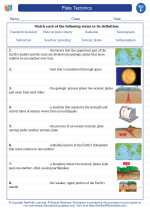Ecological System
An ecological system, also known as an ecosystem, is a community of living organisms (biotic) and the non-living components (abiotic) of their environment, interacting as a system. This includes plants, animals, microorganisms, soil, rocks, minerals, water, and air. Ecosystems can range in size from a small pond to the entire planet, and they can be found in various environments such as forests, deserts, grasslands, and oceans.
Components of an Ecological System
An ecological system consists of the following components:
- Abiotic Factors: Non-living components such as soil, water, air, sunlight, temperature, and climate.
- Biotic Factors: Living organisms including plants, animals, fungi, and microorganisms.
- Interactions: The interactions between biotic and abiotic factors, including food chains, nutrient cycles, and energy flow.
Study Guide
To understand ecological systems, it's important to study the following key concepts:
- Food Chains and Food Webs: Learn about the transfer of energy and nutrients through different trophic levels in an ecosystem.
- Biogeochemical Cycles: Understand the cycling of elements such as carbon, nitrogen, and water through the biotic and abiotic components of ecosystems.
- Ecological Succession: Explore how ecosystems change over time due to disturbances and the gradual replacement of species.
- Biodiversity: Examine the variety of species within an ecosystem and its importance for ecological stability.
- Human Impact: Consider the ways in which human activities can disrupt ecological systems and the importance of conservation and sustainable practices.
By mastering these concepts, you'll develop a comprehensive understanding of ecological systems and their significance in the natural world.
Feel free to explore the interactive examples and simulations to further enhance your understanding of ecological systems!
.◂Science Worksheets and Study Guides Sixth Grade. Plate Tectonics
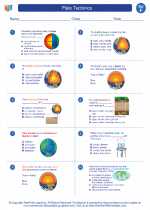
 Worksheet/Answer key
Worksheet/Answer key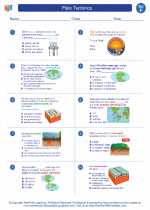
 Worksheet/Answer key
Worksheet/Answer key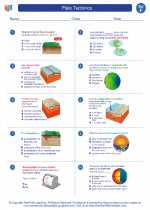
 Vocabulary/Answer key
Vocabulary/Answer key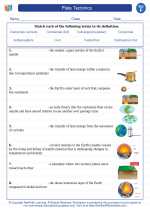
 Vocabulary/Answer key
Vocabulary/Answer key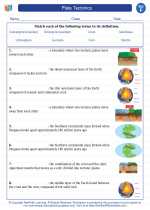
 Vocabulary/Answer key
Vocabulary/Answer key
 Vocabulary/Answer key
Vocabulary/Answer key